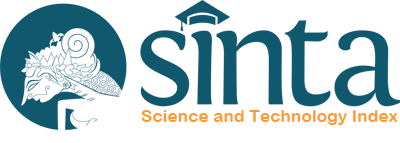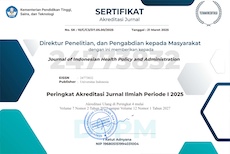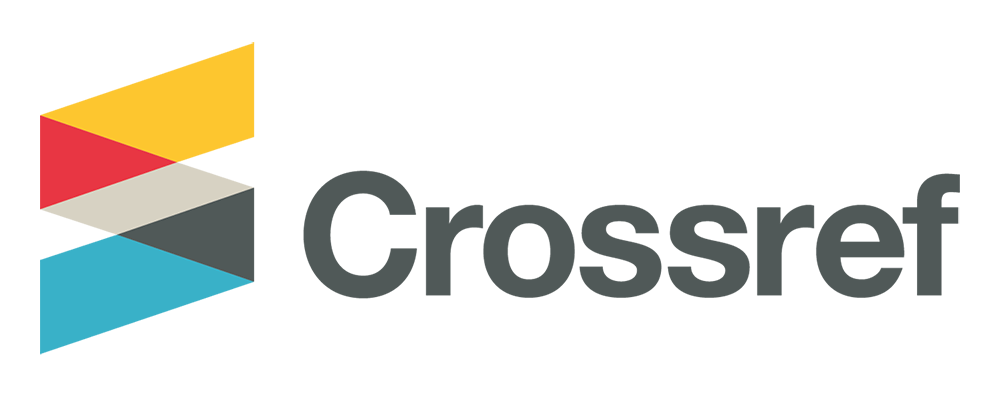Abstract
The prevalence of diabetes in the world is projected to continue to increase to 643 million in 2030. Indonesia is ranked 7th with the highest number of diabetes mellitus sufferers and the only one in Southeast Asia with a total of 10.7 million sufferers. Consumption of sweetened drinks is the most dominant factor in the incidence of diabetes mellitus in Indonesia. Indonesia ranks third highest in Southeast Asia in sweetened drink consumption. Excise on sweetened drinks is an effective intervention to reduce consumption of sweetened drinks, but Indonesia has not yet implemented it. This research aims to determine the implementation of excise tax policies on sweetened drinks and their implications in various countries. The study used a literature review using PubMed, ScienceDirect, Springer Link, and Scopus online databases and was based on PRISMA (Preferred Reporting Items for Systematic Reviews and Meta-Analysis). Fifteen articles were analyzed in this study. The study was conducted in Chile, Mexico, Berkeley, San Francisco, Portugal, Germany, Ireland, the UK, South Africa, Zambia, Thailand, and Saudi Arabia while the articles were published in 2013-2021. The conclusion is excise tariffs are carried out with a specific system and ad valorem. The excise policy on sweetened drinks can lead to reduced consumption, energy intake, and the prevalence of non-communicable diseases so that it can reduce healthcare costs. From an economic standpoint, it impacts increasing state revenues, does not affect job losses, and creates industrial resistance.
References
- Irwan. Epidemiologi Penyakit Tidak Menular. 1st ed. Yogyakarta: Deepublish; 2016.
- Kementerian Kesehatan Republik Indonesia. Laporan Nasional RISKESDAS 2018. Jakarta: Kementerian Kesehatan Republik Indonesia; 2019. Available from: https://www.kemkes.go.id/article/view/19093000001/penyakit-jantung-penyebab-kematian-terbanyak-ke-2-di-indonesia.html
- Kementerian Kesehatan Republik Indonesia. Infodatin tetap produktif, cegah, dan atasi Diabetes Melitus 2020. Pusat Data dan Informasi Kementerian Kesehatan Republik Indonesia; 2020. Available from: https://pusdatin.kemkes.go.id/resources/download/pusdatin/infodatin/Infodatin-2020-Diabetes-Melitus.pdf
- Wahidah N, Rahayu SR. Determinan Diabetes Melitus pada Usia Dewasa Muda. HIGEIA Journal of Public Health. 2022;6(1):114-125
- WHO. Taxes on sugary drinks: Why do it? 2017. Available from: https://apps.who.int/iris/bitstream/handle/10665/260253/WHO-NMH-PND-16.5Rev.1-eng.pdf?sequence=1
- Phonsuk P, Vongmongkol V, Ponguttha S, Suphanchaimat R, Rojroongwasinkul N, Swinburn BA. Impacts of a sugar sweetened beverage tax on body mass index and obesity in Thailand: A modelling study. PLoS One. 2021;16(4). doi: 10.1371/journal.pone.0250841
- Cuadrado C, Dunstan J, Silva-Illanes N, Mirelman AJ, Nakamura R, Suhrcke M. Effects of a sugar-sweetened beverage tax on prices and affordability of soft drinks in Chile: A time series analysis. Social Science and Medicine. 2020;245:112708. doi: 10.1016/j.socscimed.2019.112708
- Marinello S, Leider J, Powell LM. Employment impacts of the San Francisco sugar-sweetened beverage tax 2 years after implementation. PLoS ONE. 2021;16(6):1-16. https://doi.org/10.1371/journal.pone.0252094.
- Hangoma P, Bulawayo M, Chewe M, et al. The potential health and revenue effects of a tax on sugar sweetened beverages in Zambia. BMJ Glob Health. 2020;5(4):1-9. https://doi.org/10.1136/bmjgh-2019-001968.
- Goiana-Da-Silva F, Severo M, Cruz e Silva D, et al. Projected impact of the Portuguese sugar-sweetened beverage tax on obesity incidence across different age groups: A modelling study. PLoS Med. 2020;17(3):1-17. https://doi.org/10.1371/journal.pmed.1003036.
- Alsukait R, Wilde P, Bleich SN, Singh G, Folta SC. Evaluating Saudi Arabia’s 50% carbonated drink excise tax: Changes in prices and volume sales. Econ Hum Biol. 2020;38:100868. https://doi.org/10.1016/j.ehb.2020.100868.
- Caro JC, Corvalán C, Reyes M, Silva A, Popkin B, Taillie LS. Chile’s 2014 sugar-sweetened beverage tax and changes in prices and purchases of sugar-sweetened beverages: An observational study in an urban environment. PLoS Med. 2018;15(7):1-19. https://doi.org/10.1371/journal.pmed.1002597
- Schwendicke F, Stolpe M. Taxing sugar-sweetened beverages: Impact on overweight and obesity in Germany. BMC Public Health. 2017;17(1):88. https://doi.org/10.1186/s12889-016-3938-4.
- Barrientos-Gutierrez T, Rojas-Martínez R, Rodrigues ER, et al. Expected population weight and diabetes impact of the 1-peso-per-litre tax to sugar sweetened beverages in Mexico. PLoS ONE. 2018;13(1). https://doi.org/10.17605/OSF.IO/KHKWP.
- Sánchez-Romero LM, Penko J, Coxson PG, et al. Projected impact of Mexico’s sugar-sweetened beverage tax policy on diabetes and cardiovascular disease: A modeling study. PLoS Med. 2016;13(11):1-17. https://doi.org/10.1371/journal.pmed.1002158.
- Falbe J, Thompson HR, Becker CM, Rojas N, McCulloch CE, Madsen KA. Impact of the Berkeley excise tax on sugar-sweetened beverage consumption. Am J Public Health. 2016;106(10):1865-1871. https://doi.org/10.2105/AJPH.2016.303362.
- Manyema M, Veerman JL, Chola L, et al. Decreasing the burden of type 2 diabetes in South Africa: The impact of taxing sugar-sweetened beverages. PLoS ONE. 2015;10(11):1-17. https://doi.org/10.1371/journal.pone.0143050.
- Manyema M, Veerman LJ, Chola L, et al. The potential impact of a 20% tax on sugar-sweetened beverages on obesity in South African adults: A mathematical model. PLoS ONE. 2014;9(8). https://doi.org/10.1371/journal.pone.0105287.
- Briggs ADM, Mytton OT, Madden D, et al. The potential impact on obesity of a 10% tax on sugar-sweetened beverages in Ireland, an effect assessment modelling study. BMC Public Health. 2013;13(1). https://doi.org/10.1186/1471-2458-13-860.
- Briggs ADM, Mytton OT, Kehlbacher A, et al. Overall and income specific effect on prevalence of overweight and obesity of 20% sugar sweetened drink tax in UK: Econometric and comparative risk assessment modelling study. BMJ. 2013;347:1-17. https://doi.org/10.1136/bmj.f6189.
- World Health Organization. Fiscal Policies for Diet and Prevention of Noncommunicable Diseases: Technical Meeting Report (5–6 May 2015, Geneva, Switzerland). Geneva: World Health Organization; 2016.
- World Bank. Taxes on Sugar-Sweetened Beverages: International Evidence and Experiences. Washington, DC: World Bank; 2020.
- Selvi S, Sitorus E, Handayani S, Maesiwi P. Kajian Kebijakan Pengenaan Cukai Minuman Berpemanis. J Ilm Adm. 2020;3(2):195-204. https://doi.org/10.31334/transparansi.v3i2.1177.
- Putera FR. Penerapan cukai minuman berkarbonasi, diperlukan kolaborasi sektor kesehatan dan keuangan. Farmasetika. 2019;3(3):41. https://doi.org/10.24198/farmasetika.v3i3.21627.
- Rosyada H, Ardiansyah BG. Analisis fisibilitas pengenaan cukai atas minuman berpemanis (sugar-sweetened beverages). Kajian Ekon Keuangan. 2017;1(3):229-241. https://doi.org/10.31685/kek.v1i3.291.
- Fathiyah R. Analisis formulasi kebijakan cukai minuman berpemanis gula (sugar sweetened beverages) di Indonesia. 2021.
- Bappenas. Rencana aksi pangan dan gizi tahun 2021-2024. 2021. https://jdih.bappenas.go.id/data/abstrak/2021-KEPMEN-PPN-124-Rencana_Aksi_Nasional_Pangan_dan_Gizi_tahun_2021-2024.pdf.
- Muadi SSAMI. Konsep dan kajian teori perumusan kebijakan publik. Rev Polit. 2016;6:195–224.
- Eykelenboom M, Djojosoeparto SK, Van Stralen MM, et al. Stakeholder views on taxation of sugar-sweetened beverages and its adoption in the Netherlands. Health Promot Int. 2022;37(2):1–14. https://doi.org/10.1093/heapro/daab114.
- Hafsyah SS. Diabetes pada anak meningkat, cukai minuman berpemanis makin mendesak. KBR. 2023. https://kbr.id/nasional/02-2023/diabetes-pada-anak-meningkat-cukai-minuman-berpemanis-makin-mendesak/110948.html.
- Sopiah A. Tok! Penerapan cukai minuman berpemanis mundur ke 2024. CNBC Indonesia. 2023. https://www.cnbcindonesia.com/news/20230417194218-4-430752/tok-penerapan-cukai-minuman-berpemanis-mundur-ke-2024.
- Colchero MA, Salgado JC, Unar-Munguía M, Molina M, Ng S, Rivera-Dommarco JA. Changes in prices after an excise tax to sweetened sugar beverages was implemented in Mexico: Evidence from urban areas. PLoS ONE. 2015;10(12):1–11. https://doi.org/10.1371/journal.pone.0144408.
- Silver LD, Ng SW, Ryan-Ibarra S, et al. Changes in prices, sales, consumer spending, and beverage consumption one year after a tax on sugar-sweetened beverages in Berkeley, California, US: A before-and-after study. PLoS Med. 2017;14(4):1–19. https://doi.org/10.1371/journal.pmed.1002283.
- Roberta RF, Kelly DB. Sugar-sweetened beverage taxes: An updated policy brief. 2012. http://www.yaleruddcenter.org/resources/upload/docs/what/reports/Rudd_Policy_Brief_Sugar_Sweetened_Beverage_Taxes.pdf.
- Kusnadi G, Segalita C, Novita IE, et al. Pemahaman dan dukungan masyarakat terhadap cukai minuman berpemanis dalam kemasan (MBDK). 2023.
- Roache SA, Gostin LO. The untapped power of soda taxes: Incentivizing consumers, generating revenue, and altering corporate behavior. Int J Health Policy Manag. 2017;6(9):489–93. https://doi.org/10.15171/ijhpm.2017.69.
- Teng A, Puloka V, Genç M, et al. Sweetened beverage taxes and changes in beverage price, imports and manufacturing: Interrupted time series analysis in a middle-income country. Int J Behav Nutr Phys Act. 2020;17(1):1–12. https://doi.org/10.1186/s12966-020-00980-1.
- Guerrero-López CM, Molina M, Colchero MA. Employment changes associated with the introduction of taxes on sugar-sweetened beverages and nonessential energy-dense food in Mexico. Prev Med. 2017;105(Suppl)–S49. https://doi.org/10.1016/j.ypmed.2017.09.001.
- Swisscham Indonesia. Advancing Indonesia 4.0: Opportunities to enhance the Indonesia-Switzerland economic relationships in trade, investment, and development. 2020.
Bahasa Abstract
Prevalensi diabetes di dunia diproyeksikan terus meningkat sampai 643 juta pada tahun 2030. Prevalensi diabetes melitus di Indonesia meningkat dari 10,9% (2018) menjadi 11,7% di tahun 2023. Konsumsi minuman berpemanis menjadi salah satu faktor terhadap kejadian diabetes mellitus di Indonesia. Cukai minuman berpemanis dapat menjadi intervensi yang efektif untuk mengurangi konsumsi minuman berpemanis, namun Indonesia belum mengimplementasikannya. Penelitian ini bertujuan untuk mengetahui implementasi kebijakan cukai pada minuman berpemanis serta implikasinya di berbagai negara. Penelitian ini menggunakan metode literature review dengan memanfaatkan databese online PubMed, ScienceDirect, Springer Link dan Scopus. Berpedoman pada PRISMA (Preferred Reporting Items for Systematic Reviews and Meta-Analysis). Terdapat 15 artikel dianalisis dalam penelitian ini. Studi dilakukan di wilayah Chili, Meksiko, Portugal, Jerman, Irlandia, Inggris, Afrika Selatan, Zambia, Thailand dan Arab Saudi. Artikel dipublikasikan tahun 2013-2021. Tarif cukai dilakukan dengan sistem spesifik dan ad valorem. Dengan demikian, kebijakan cukai minuman berpemanis dapat menyebabkan menurunnya konsumsi, asupan energi serta prevalensi penyakit tidak menular sehingga dapat menurunkan biaya perawatan kesehatan. Pada sisi ekonomi berdampak pada peningkatan penerimaan negara, tidak berdampak terhadap hilangnya pekerjaan dan menimbulkan resistensi industri.
Recommended Citation
Khotami, Roissiana; Yulianty, Vetty; and Oktarina, Ratih
(2024)
"Implementation of Sugar-Sweetened Beverages Excise Policy and Its Implications in Various Countries: Literature Review,"
Journal of Indonesian Health Policy and Administration: Vol. 9:
No.
3, Article 5.
DOI: 10.7454/ihpa.v9i3.1130
Available at:
https://scholarhub.ui.ac.id/ihpa/vol9/iss3/5
Included in
Health Policy Commons, Health Services Administration Commons, Health Services Research Commons











